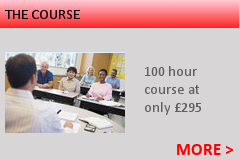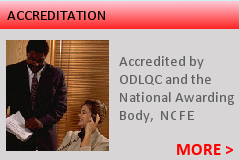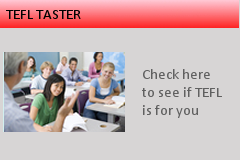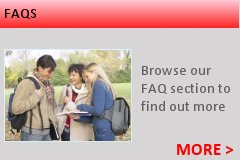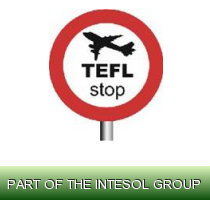

KOREA
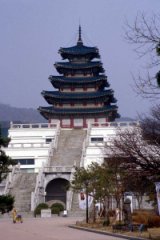
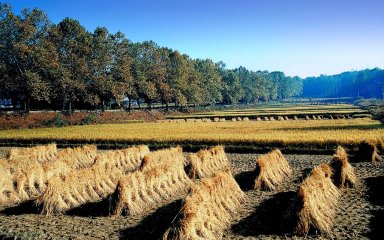
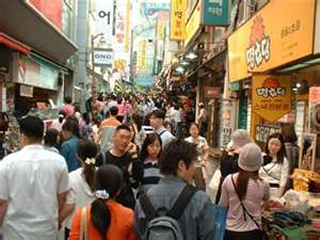
Basic info
Korea is a country in East Asia, located on the southern portion of the Korean peninsula. It is bordered by China, Russia and is separated from Japan by the Korea Strait and the Sea of Japan. North and South Korea formerly counted as one state but is now divided into two separate states, the state where you will find TEFL positions is South Korea. It�s capital is Seoul and it has a population of a whopping 50 million people! South Korea is extremely mountainous which is partly what makes it so beautiful. It is a humid country which is warm in the summer but can get very cold indeed come winter time. Temperatures range from �7 to 1 degrees centigrade in January to 22 to 30 degrees centigrade in August. Rainfall is concentrated from June to September and it is prone to typhoons.
Why should I go to Korea?
South Korea is a beautiful country with modern bustling cities and gorgeous countryside full of serene temples, lush rice paddies, amazing waterfalls and unspoiled fishing villages. It is a forward thinking country, especially technologically, particularly keen on space travel and robotics. The government even has plans to build the first robot-themed parks! Culturally it is extremely different from Britain, making it ideal if you want a bit of an adventure! It is also a great place to teach English as a foreign language as there is a very high demand for English teachers and it is one of the places with the highest paid jobs. Unlike other Asian countries such as Japan and Thailand, South Korea doesn�t attract that many tourists from the Western world so most non-Korean people you will come across will in fact be other TEFLers, great if you�re looking for somewhere pure where you can get away from holiday makers. What more could you want!
What is there to see and do?
The Capital, Seoul, is a good place to start. Often referred to as �miracle on the han� after its revival after the Korean War, Seoul is filled with parks, culture and design. It is the world Design Capital and has many other projects on the way. Surrounded by forested mountains and full of chic boutiques and fantastic bars and restaurants, it�s an ideal place to go to simply relax or fill your time with sightseeing.
If you�re looking for a bit of nightlife while you�re away then look no further than Club FF in Seoul. A well known live venue with up to eight live bands playing at the weekend until the venue turns into a dance club with world-renowned DJs playing every weekend. The best place to go if you�ve had a hard day teaching and just want to forget all your worries and dance the night away!
During the day there are plenty of cafes and restaurants to be found in Seoul, far too many to mention, but if you are looking for something a bit more cultural to fill your time then The National Museum of Contemporary Art is a good choice. A large gallery which comprises of three floors and even spills outside, with a garden full of sculptures. The special exhibitions will blow your mind, even if you�re not usually much of an art fan! We�d tell you a bit more about them but we don�t want to ruin the surprise!
Busan is South Korea�s second city, with a population of around 3.6 million. It is the largest port city in South Korea, linking up to the Korea Strait. As well as it�s port, Busan is especially known for being home to the world's largest department store, the Shinsegae Centum City. As with most of Asia�s major cities is has plenty to offer in the way of temples and markets, and there is a wide variety of food to be found. If you�re nearby why not visit the aquarium or Busan Modern History Museum for a fun and educational day out.
The ancient city of Gyeongju is the place to go if it�s history and culture you�re after. It has tombs, temples, ruins, castles and much much more! At 1323 square metres in size it�s not small so you should take a few days to make sure you see everything you want to.
Other key places to see include Dadohae Haesang National Park, which consists of over 1700 tiny islands; and Incheon, a cosmopolitan city with a twist, with amusement rides, sushi shops and a Chinatown along the waterfront.
There are many activities to keep you entertained, wherever you are. From mountain hiking to learning martial arts! There are beautiful beaches everywhere and swimming and sunbathing are popular activities in the summertime.
How safe is it?
South Korea has a reputation as being a very safe place to work; this is backed up by the fact that it is one of the most law-abiding nations in the world. It attracts many female teachers and most of them only have good things to say about living there. However, as always it�s important to use your common sense and avoid being on your own in unknown areas and giving out your address to strangers. You should be particularly careful when payday comes around, as it is common in Korea to be paid cash in hand. Be careful not to flash your money or other valuables when in public.
What qualifications or experience do I need to have? How do I know if I�m eligible?
Most places in Korea will want you to have a university degree, in any subject, and some kind of TEFL certificate. Without this qualification you will find it hard to find work and the better (and better paid!) jobs go to those with a teaching qualification.
A teaching qualification will show that you�re dedicated and committed to teaching and will also help you feel a lot more confident once you�re in the classroom. You won�t last long if students start firing grammar questions at you and you don�t know what they�re talking about!
Previous teaching experience is not essential in Korea, however in many other places around the world a year�s teaching experience may be desirable or even a requirement. Therefore Korea is an excellent place to start if you�re a newly qualified teacher. *Click here to see our Korea package*
Please remember that to be officially qualified to teach, your course must be internationally recognised which means being at least 100 hours long and accredited by an independent accrediting body. As convenient as they may seem at the time, weekend courses will not qualify you to teach.
You must also hold a passport from an English speaking country ie the UK, Ireland, USA, Canada, Australia, New Zealand and South Africa. Being a native English speaker is almost always a pre-requisite and will help you massively in South Korea.
You will need your original degree certificate and your university transcripts to get a job in most places. If you are short on time then you can go to Korea on a tourist visa and your school will pay for you to go on a visa run to Japan. However, the best way to do it is to ask your school to arrange the paperwork for you and then take it to the Korean embassy in your country so you can sort it out before you go.
Are there any age restrictions?
Korean schools prefer their teachers to be under 35 years of age. It�s a great place to start out and get qualified so many people use it as a stepping stone to teaching elsewhere in the world when they�re a bit older. Remember, one you�re qualified; the world is your oyster!
What will I earn and what currency do they use?
The currency used in Korea is won (W) which comes in W10, W50 W100 and W500 coins and W1000, W5000, W10,000 and W50,000 notes. US dollars are the easiest to exchange but any major currency can be changed. Salaries are ever rising in Korea and right now native English teachers on a one year contract earn 2 million won (W) a month or even more. This is equivalent to approximately �1,100 or $1,800.
You will often be paid in cash so expect big wads of 10,000 won notes to be given to you each month.
You can also expect to get a fully furnished apartment included with your contract, 10 days paid holiday and a completion bonus at the end of the year. (If you�re lucky you may even get your outgoing or sometimes both flights included!) *Click here to see our Korea package*
Tax is only 5% so you will go away with most of what you earn. A big plus if you�re going into teaching for the money!
What will the schools be like and what hours will I work?
Most teachers will find work in a hagwon (a private language school) although it is possible to be employed by universities and government schools, known as public schools. Teaching hours are usually around 30 a week, some of which could be in the evenings or weekend. You may sometimes be expected to work split shifts, especially if teaching adults. You will also be expected to spend time planning and marking, as with any teaching work.
As a newly qualified teacher you will most likely be teaching children, from 7 to 15 years of age. Class sizes vary but will usually be approximately 6 to 12 students. Classes are usually between 40 to 60 minutes long.
Most schools will supply you with all the teaching materials you require and teachers will not be expected to speak Korean. In fact, they prefer it if you don�t! However, knowing a little may help you to get by outside of the classroom.
Anything else I should know?
If you change employers while you are over there, you may need to obtain a new work visa. This means you will need to leave the country and go to Japan to pick up a new one, which won�t be cheap! So it�s important to read up on your employer before committing to a job. Check the website for warnings and maybe even contact current employees to see what they have to say about their employer. Ours has been checked out for you.
Also, due to the way that Korean people count their age people may actually be one or two years younger than their real age. For example a seven year old could be only five or six years old. Be aware of this if you are applying for an exact age group.
Remember to take your shoes off when you visit someone�s home and even in some restaurants! Take a look around to see what other people are doing before you kick off your Jimmy Choos at the door!

